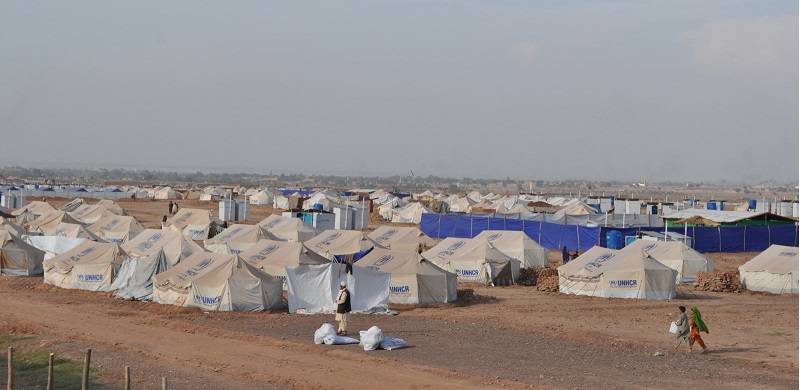
“There is nothing more unsettling than the continual movement of something that seems fixed”
(Gilles Deleuze)
Citizenship is commonly understood as political affiliation and membership in a specific nation-state, granting individuals civil, political, economic and social rights. However, in many states, certain populations are excluded from citizenship rights, despite holding formal citizenship status. This situation particularly affects displaced individuals, both internally displaced and those crossing international borders, who are denied formal citizenship and its associated rights. Nevertheless, from their subjective standpoint, these individuals perceive their lived experiences as a form of de facto citizenship and have been protesting globally for the right to citizenship (Mehta & Napier-Moore, 2010).
This issue is evident in the case of Pakistan, where Bengalis who have been residing in the country since 1971 or earlier, as well as various influxes of Afghan refugees who have been living in Pakistan since the 1980s and onwards, are denied birthright citizenship and the citizenship rights stipulated by Pakistan's constitution. Pakistan currently hosts over 1.39 million registered Afghan refugees holding Proof of Registration (POR) cards. There are non-registered individuals with other legal identities such as Citizens Cards (ACC), Asylum Certificates and many recent refugees who came after the fall of Kabul have no legal identity in Pakistan. Additionally, there are over 200,000 ethnic Bangladeshis in Pakistan, primarily concentrated in Karachi (Al Jazeera, 2018).
In 2018, Prime Minister Imran Khan pledged to implement existing Pakistani laws to grant citizenship to Afghan and Bangladeshi refugees born on Pakistan’s soil, signaling a departure from previous policies. However, this move faced opposition from the country's powerful military
Bengali refugees in Pakistan were initially granted citizenship but now face a blockade on their citizenship rights, with cases lingering in courts for years. The lack of identity cards has become a tool for discrimination, leaving the Bengali and Afghan refugee communities extremely vulnerable. By registering as aliens, they are denied education, healthcare services, justice, protection and job opportunities. Their identity cards are less effective, providing fewer rights and excluding them from the socio-economic services available to local citizens. This behavior is applied to both Afghan refugees in Balochistan and Bengali refugees in Sindh.
Although Pakistan's citizenship laws theoretically grant the right to citizenship to those who migrated to Pakistan during the 1971 separation, the implementation of these laws faces challenges due to systemic corruption and discrimination against the Bengali community and Afghan refugees. The law also provides birthright citizenship for children born in Pakistan. However, the lack of awareness and high illiteracy rates among these communities hinder their ability to navigate the complex legal procedures to claim their rights (Rahman & van Schendel, 2003).
In 2018, Prime Minister Imran Khan pledged to implement existing Pakistani laws to grant citizenship to Afghan and Bangladeshi refugees born on Pakistan’s soil, signaling a departure from previous policies. However, this move faced opposition from the country's powerful military, which has often blamed Afghan refugees for violence and terrorism in Pakistan. Moreover, Pakistan's complex and often unstable relationships with Afghanistan and Bangladesh have influenced refugee laws and their integration into Pakistani society from grassroots level. The ongoing conflict and instability in Afghanistan continue to drive out Afghan refugees to seek refuge in Pakistan, exacerbating the challenges they face in terms of basic rights, integration, discrimination and access to socio-economic services.
Bengali and Afghan refugees who have been settled, born and raised in Pakistan for over 30 to 40 years have no viable plan for repatriation. Previous attempts at repatriation for Afghan refugees proved unsuccessful, as many returned to Pakistan after a few years. Bengali refugees, who have no way back to Bangladesh, could potentially be labeled as traitors for migrating or staying in Pakistan after separation. The lack of citizenship has increased the vulnerabilities and marginalisation of Bengali and Afghan refugees, hindering the inclusion of their generations in mainstream development and progress. Additionally, social intolerance and a lack of integration have exacerbated their social isolation.
The government of Pakistan should prioritise addressing the needs of Afghan and Bengali refugees, particularly in terms of legal identification within the context of Pakistan's constitution and citizenship laws and policies. International organisations play a crucial role in supporting Afghan and Bengali refugees in Pakistan. They should prioritize addressing the needs of these refugees, especially regarding legal identification and protection. It is important for the international community to collaborate with the Pakistani government, local authorities and civil society organisations to ensure a comprehensive and coordinated response to the needs of the large number of Afghan and Bengali refugees in Pakistan.

